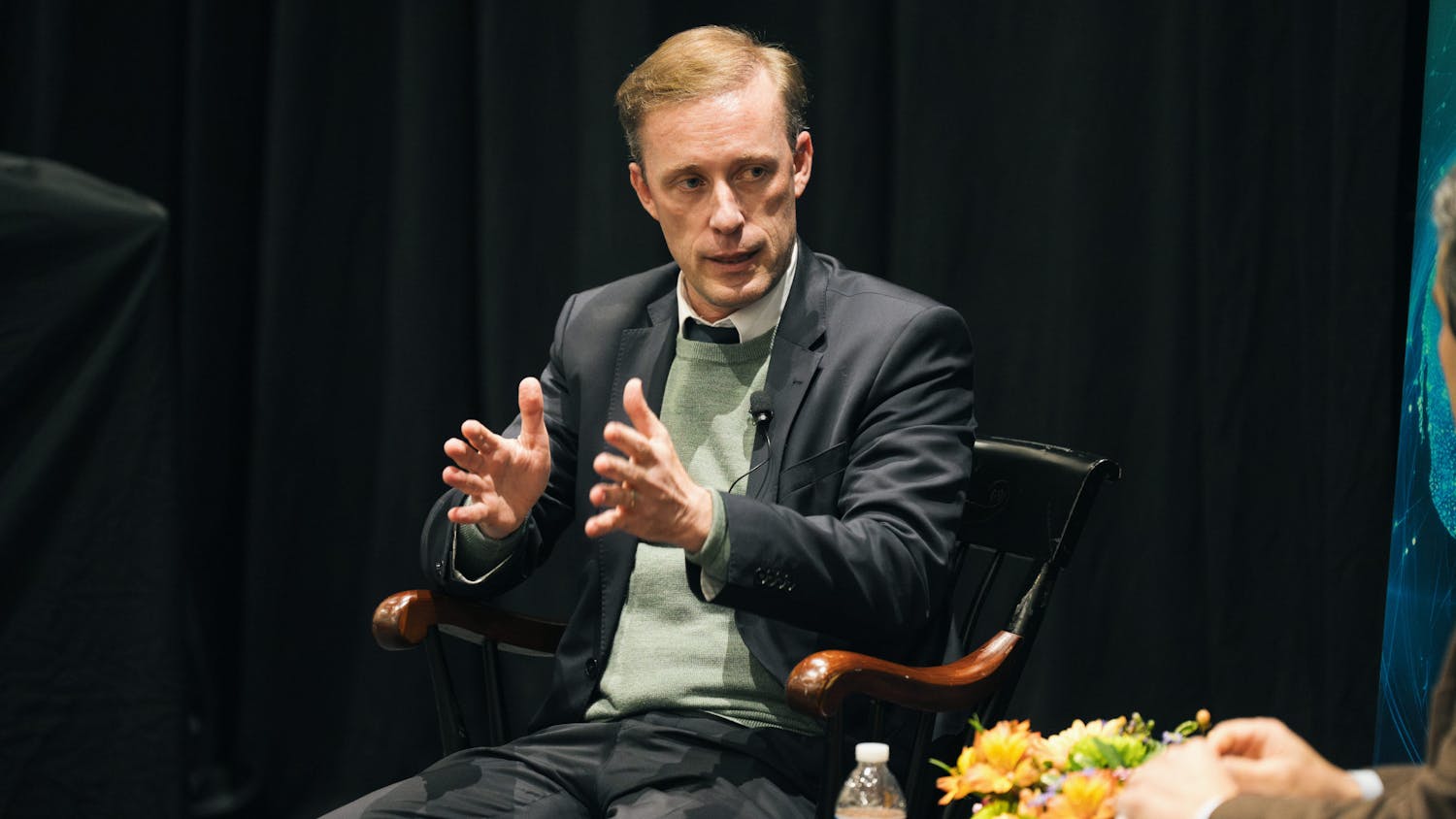As the nation moves closer to military action, Dartmouth students gathered at Collis Center Friday in support of peace and to protest war against Iraq.
Posters advocating nonviolence decorated the exterior walls of Collis, as a crowd of around 60 students and community members -- significantly less than the hundreds of participants the rally's organizers hoped for -- discussed their individual views on the war, amid politically-motivated folk music playing in the background.
Assorted students and faculty spoke for about an hour, all rallying the crowd in opposition to President George W. Bush's military strategies. Following the group protest, the crowd attended two sets of teach-ins -- lectures given by Dartmouth faculty covering various topics from the Iraqi threat to the feasibility of regime change.
The teach-ins are "about finding out more about the situation," Dartmouth Greens secretary Katherine Schuerman said. "I think one of the things we're doing is giving the people a perspective."
The perspectives offered, however, primarily focused on the anti-war movement's stance.
"Must Christ die in every generation?" Carla Baily, the campus minister from the United Church of Christ, asked the energized crowd outside of Collis. The rest of the speakers shared her vehement anti-war stance, each discussing their reasons for opposing Bush's plan for military action.
The College Republicans, the leading pro-war group on campus, appeared indifferent to Friday's protest. C. Rollo Begley '04, treasurer of the College Republicans, said that a "majority of Americans support the war on Iraq."
"The Greens can sputter around and make all the noise they want," Begley said. "I don't care."
Spanish Professor Agnes Lugo-Ortiz, a particularly impassioned speaker, called the Bush administration "chicken hawks" and "warmongers," and said that the government's plan for a military strike "defies the logic of current warfare."
In a following event, anthropology Professor Dale Eickelman's lecture, entitled "Governing Iraq After Regime Change: Will the Japanese Model Work?" repeatedly denounced the idea of a U.S.-imposed Iraqi regime change.
"If America goes in, whatever happens is going to be chaotic," Eickelman said. He also warned that in building a new government in Iraq, the United States would have to lower its "moral barrier" to deal unique Iraqi problems, such as the government-sponsored secret police and military leadership.
In his teach-in named "Technology and Consequences of Weapons of Mass Destruction," Thayer Engineering School Dean Lewis Duncan warned of the grave dangers of a biological or nuclear strike. He said several times that the United States is "vulnerable to another attack," and that casualties would be much higher than the Sept. 11 strike.
Duncan admitted his anti-war bias, which was similar to that of most speakers, but said he understood that it was a complicated issue, and gave some support to the pro-war arguments.
The protest not only elicited student response, but also attracted many Upper Valley residents, both young and old. One of the more striking features of the rally was a sign made and held by Will Wickham and Sebastian McMahon, both 12 years old, that read "It'll be me fighting, not you."
The two youths said that their parents were at the protest, but they were also "opposed to war."
A brief candlelight vigil concluded the day of protest, as roughly 50 people stood in a silent circle on the Green.
The event was the culmination of the "Why War? Think About It" campaign, which had been distributing various fliers and stickers around campus for weeks before Friday's protest.



